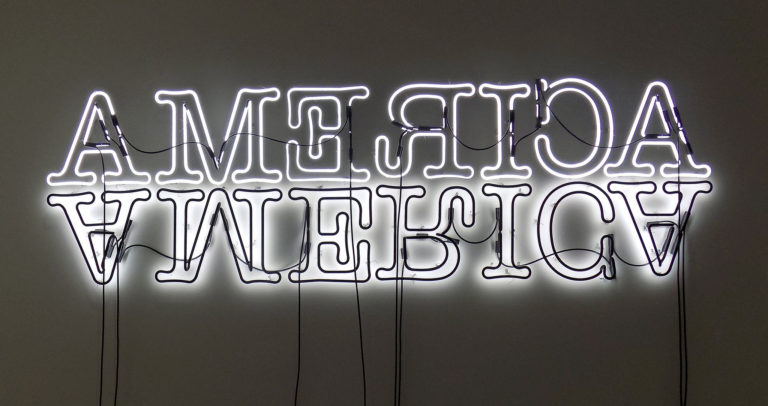Family Values: Between Neoliberalism and the New Social Conservatism. By Melinda Cooper. New York: Zone Books, 2017, 416 pp. (hardcover) ISBN 978 1 9354 08840. US List: $29.95. In an academic world flush with and made into silos by specialized topics, research articles, and books, Melinda Cooper’s interdisciplinary integration is a most welcome map of the…
Keyword: neoliberalism
Review of Foucault and Neoliberalism, edited by Daniel Zamora and Michael C. Behrent (Polity)
Foucault & Neoliberalism modestly argues that Foucault’s project, particularly after May 1968, bore striking similarities with neoliberalism. Although scholars have debated this issue since at least the French publication of The Birth of Biopolitics, Foucault & Neoliberalism shows that, since the English publication of the same lecture series in the inauspicious year of 2008, the American university has increasingly deracinated Foucault from his French context and thereby misread his attitude toward neoliberalism. Thus Foucault & Neoliberalism, an English translation of Zamora’s previous anthology in French, Critiquer Foucault, seeks to revive the debate—and has done so in the pages of Jacobin magazine thus far—by situating Foucault back into his proper historical milieu.
The Contexts of Critique: Para-Institutions & the Multiple Lives of Institutionality in the Neoliberal University
Response to Jodi Melamed, “Proceduralism, Predisposing, Poesis: Forms of Institutionality, In the Making,” published in Lateral 5.1. Tabares invites us to question the role of what he calls ‘para-institutions,’ such as corporations, in shaping and influencing the logics and investments within the university. As a counterpoint to these processes, he ponders the possibilities of seizing upon the elements of proceduralism in mobilizing forms of collectivity that can span across institutional contexts outside the academy.
Neoliberalism, Racial Capitalism, and Liberal Democracy: Challenging an Emergent Critical Analytic
Response to Jodi Melamed, “Proceduralism, Predisposing, Poesis: Forms of Institutionality, In the Making,” published in Lateral 5.1. Aho pointedly argues that studies of institutionality all too often substantiate what she calls neoliberalocentrism, which readily posits neoliberalism as the singular paradigm into narrating a teleological development of history. Instead, she echoes Kim and Schalk to articulate ‘crip-of-color materialism’ as an analytic that thickens understandings about global structures of inequity and fissures within them.
Response to Tanja Aho and Leland Tabares: Madness and Parainstitutionality
Tanja Aho’s response both criticizes a scholarly trend she identifies as “neoliberalcentrist analytics” for presuming neoliberalism’s homogeny, hegemony, and totality and introduces a new critical analytic, “crip of color materialism,” which Aho describes as “the convergence of a historical materialist critical disability studies/crip theory/mad studies with critical race theory and queer of color critique.” This…
Review of Dispossession: The Performative in the Political by Judith Butler and Athena Athanasiou (Polity)
“Dispossession: The Performative in the Political” is an interdisciplinary cultural text published from the conversations between Judith Butler and Athena Athanasiou. “Dispossession” brings the reader to key questions within philosophical inquiry including: What does it mean to be human? Which bodies are vulnerable as a result of normalizing regimes? How does precarity shift over time? What does occupation mean in regards to discipline and resistance? Which bodies are allowed to have a place and what does demanding a place do to dislocated bodies? Can non-normative people be recognized by the state without incorporation to propriety politics? How is agency complicated by the inter-related nature of life in the everyday?
Neoliberal Aesthetics: 250 cm Line Tattooed on 6 Paid People
Eunsong Kim challenges existing literature on Spanish artist Santiago Sierra, articulating Sierra’s neoliberal aesthetics as part of a process of managing the imagination of finance capitalism. By situating Sierra’s performance art as a performance of terror, Kim argues that Sierra does not just collaterally reproduce capitalist power relations, but coldly and calculatedly exploits and violates the bodies of the working poor, particularly people of color, for his own profit and for the viewing pleasure of his wealthy audiences. Kim fiercely critiques the ways Sierra profits from his use of Marxist discourse and appeals to political action. In doing so, Kim challenges scholars and artists to embrace the position of laborers and take up Black Radicalism against artistic instantiations of capitalism.
Critical Purchase in Neoliberal Times
‘Critical Purchase in Neoliberal Times’ is an edited conversation with Ien Ang and three members of the Cultural Studies Praxis Collective (CSPC): Miriam Bartha, Bruce Burgett, and Ron Krabill. The transcript of the conversation conducted at the University of Washington was reworked and revised by the interlocutors. The document as a whole surfaces and addresses a series of questions about engaged and community-based forms of cultural studies scholarship; multiculturalism, cosmopolitanism, and media policy; and the future of the transnational field of cultural studies in the context of the neoliberal turn in global higher education.
The Humanities and the University in Ruin
Mowitt’s essay puts before us in terms of work or, as Mowitt puts it, ‘re: working’ the work of study, scholarship, and research under the contemporary conditions of ‘biopolitical contol’ or neoliberal structural adjustment of the academy. Mowitt warns against reducing the issue of study to complaints of poor pay and poor working conditions and therefore holds the issue of the labor of study on a fine line between the refusal of the work of study altogether and the insistence on simply enjoying the study that we are required to do or paid to do. Mowitt is not denying the poor conditions under which so many of us work for insufficient pay in and outside the University; he rather is warning us about moving too quickly off the fine line between refusal and enjoyment of the required or paid work of study. He is arguing instead for the value of study as a labor of the negative. Mowitt then takes some elegant last moves to turn this return to the labor of the negative into the work of affirmation, thought affirming itself; he thereby moves beyond the dialectic and the Euro-centric Hegelian tradition of progress to affirm instead the immanent unfolding of mindfulness or thoughtfulness, an unfolding of an affective labor that bears within it the in-excess of measure, the yet-incalculable excess of the current calculability of value. This makes the re: working of study not merely a matter of the human or the humanities but of the technical/human medium we fast are becoming, and which we are coming to know we always have been, as has the University.





